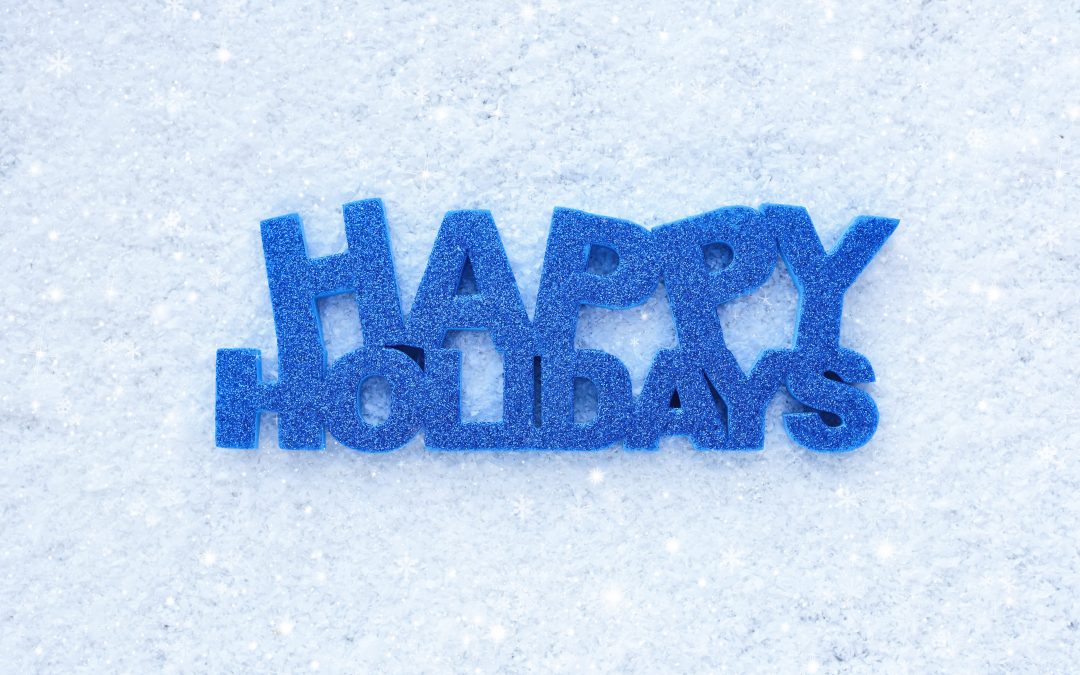Tis the season to be merry and bright! Although we all wish for the holidays to be full of joy and jolly, it is also a time for craziness, chaos, and cravings. Although upcoming festivities are meant to be cheerful occasions that bring family and friends together, there are often moments of stress and anxiety. If you are in mental health or addiction recovery, or an ally of those who are, you may find yourself being challenged during all the commotion.
Risk of relapse during these eventful times can be blinding while amid all the family and fun. There are steps you can take to stay healthy and safe while also truly enjoying your holiday season. Becoming aware of potentially triggering situations and knowing how to prepare for them can help you ease anxieties, combat obstacles, and maintain sobriety.
Common Holiday Triggers
Changes to Your Routine:
Having time off your work schedule, traveling away from your home and taking yourself out of your day-to-day routine is challenging regardless of what time of year it is, and during the holidays our discomfort with these changes are emphasized. Healthy eating patterns and exercise habits are disturbed, and we fall out of our norm, therefore leaving us more vulnerable to stress and fatigue.
Holiday Parties:
This season has a reputation for being overloaded with unique family dynamics, alcohol, and other substances. Hard conversations and pressures may arise at these social gatherings, and we may not know what to say or how to handle these situations. Being prepared with exist plans and scripted responses can help us be ready for when and if someone offers us a drink.
Family Stress:
The holiday season is often about spending time with family members. If you have a strained relationship with your family (or not), spending a significant amount of time with them can be overwhelming. Being able to balance family time with some of your own normalcy will help split up time spent with them and with yourself.
Tips for Avoiding Holiday Relapse
The holidays can be challenging, but they don’t have to end in relapse. Here are some tips to prepare for stressful holiday situations and give yourself the best gift this holiday season: Continued sobriety!
Have a Pre-Planned Response:
The holidays can be especially stressful for those in recovery from substance use disorder because of the pressures and temptations that exist. If you expect to be offered a drink, think about how you will respond. A simple yet firm “no, thank you” is often enough.
Keep it simple: “I’m not drinking tonight” or “I have to get an early start to my day tomorrow.”
By keeping a non-alcoholic drink with you, you may be able to avoid reoccurring questioning. This way, whenever someone tries to offer you alcohol, you can simply hold up your beverage, indicating that you are all set with the one you have.
Say yes: “I would love a drink! Can I get water with lemon or a Coca-Cola?”
Try humor: Remember, you don’t need to announce your sobriety unless you want to. Depending on how comfortable you feel about the subject, you may decide to just tell your truth and be done with it. “No thanks—even the top shelf booze isn’t tempting enough to make me throw away my sobriety!”
Be useful: Find ways to help others by being a sober driver, helping in the kitchen, or playing with kids in the family or friend group!
For Family and Friends:
We want to support our loved one in recovery by creating a comfortable environment that is close to “normal” as possible. Have previous conversations with them before the gathering to see what they need to feel safe. That may be asking them if they would prefer that no alcohol was present, if they would like to have check ins throughout the night, “safe words” that could hint at discomfort or if they want to have a specific visiting time. Some folks may not want any changes on their behalf, or any attention drawn to their situation; therefore, plan accordingly! Encourage them to communicate if things become overwhelming. A lot of the time, not forcing conversations about their recovery can be most helpful. The most important thing you can do is offer your love and support.
Know your resources:
Have a friend on speed dial or write down a local meeting time. If you have a sponsor or a sober confidant, stay in constant communication throughout the day/evening to create a sense of accountability. Checking in with people who are aware of your recovery is a helpful way to speak up and speak out about how you are feeling throughout the party. “This is new,” “I am well,” or “this is pretty uncomfortable for me” are simple ways of letting those who love you know if you need more support or if you are doing okay. Remember, others don’t know unless you let them know!
Some other helpful hints for the holidays can be found in our Staying Sober This Thanksgiving post.
Remember that your health and stability are far more valuable than one night of holiday celebration. Stay happy and healthy this holiday season!


Recent Comments